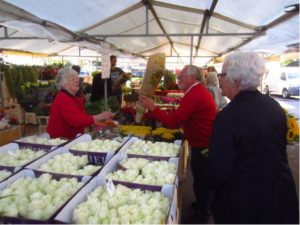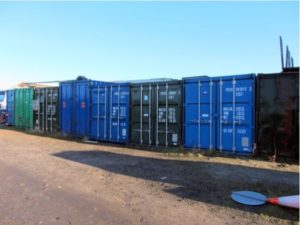Did you know that agriculture still employs more than 40 percent of the world’s population? As such, it’s still the world’s largest industry and today’s high-tech startups are all trying to get a piece of the pie. Here are some agriculture starts you can learn from.
Local Food Laboratories
When people think of agriculture startups, they think about the big Silicon Valley companies trying to make radical changes to the way we farm our food. And although they’re having a big impact, they’re not the only game in town. In fact, the vast majority of businesses entering the agricultural sector are mom-and-pop shops, buying polycarbonate roofing sheets and making their own greenhouses to grow fresh veggies. The problem for many of these firms is that they don’t have the marketing reach that they would like.

Local Food Lab thinks that it might have come up with a solution. Its idea is to link mom-and-pop shops together over a sort of Pinterest for organic food startups. The platform allows small agricultural companies to advertise their produce and hopefully return home rich from the farmer’s market.
Freight Farms
Many people try to make a bit of money on the side by growing their own vegetables in a greenhouse and then selling them on to buyers at market. Jon Friedman used to do just this, tending to his garden every morning and hoping to turn a profit. The problem was that, living in a big city, it was hard to find ways of neatly containing the garden itself.

Friedman had spent years trying to make money from his rooftop gardening business, but it wasn’t doing so well. After a while, he considered trying to save on costs by living in a shipping container. When he went to look at the container, he suddenly had a eureka moment. He could sell gardens that grew out of shipping containers: a new business was born.
Before long, Friedman was selling a couple of containers a week and making a healthy profit. Now he and a business partner have raised more than $1.2 million to develop the business further. He hopes to be able to sell the shipping container farms to schools, activists, and other entrepreneurs.
Farmeron
Keeping animals is expensive. You have to house them, feed them and know exactly when they need various inputs. Until the rise of big data, farmers found this sort of thing tough. But thanks to low-cost sensors, more and more high-tech equipment is moving into farms. The only problem for farmers is actually collecting the data and using it.
This is where Farmeron comes in. It’s building software that will allow farmers to track exactly how much feed their livestock is eating and when they need to be replenished. It’ll also tell farmers which of their herds are performing the best on a feed-to-weight measure. The hope is that Farmeron will automate farm processes based on feedback from the animals and help farmers know when to weight animals, milk cows and administer injections.


Recent Comments